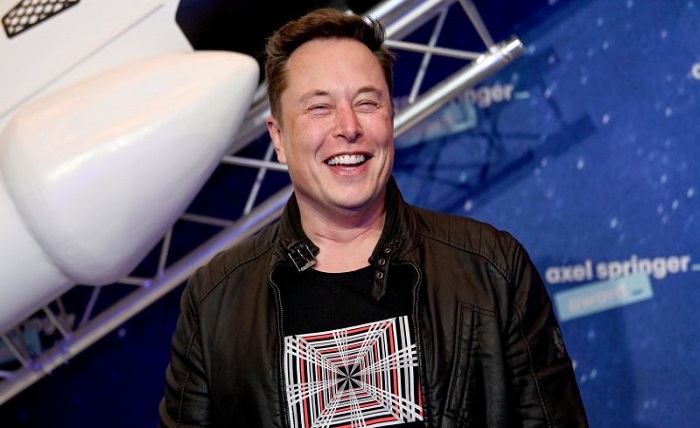Political Leaders Invite Elon Musk to Set Up Tesla Plants in Their States

In recent years, Elon Musk has become a household name as the visionary entrepreneur behind companies like SpaceX, Neuralink, and, most notably, Tesla. Tesla, with its groundbreaking electric vehicles and innovative energy solutions, has captured the attention of political leaders across the globe. This article explores the growing trend of political leaders extending invitations to Elon Musk to set up Tesla plants in their states, highlighting the benefits, challenges, and implications of such partnerships.
Who is Elon Musk?
Before delving into the topic at hand, it is essential to understand who Elon Musk is and his impact on various industries. Elon Musk is a South African-born American business magnate, investor, and engineer. He is known for co-founding companies like PayPal and Zip2, but his most influential ventures include SpaceX, Neuralink, and Tesla. Musk’s relentless pursuit of technological advancements and his commitment to sustainability have earned him a reputation as one of the world’s most prominent visionaries.
The Significance of Tesla
Tesla, the electric vehicle manufacturing company founded by Elon Musk, has revolutionized the automotive industry. With a focus on sustainability, Tesla has developed high-performance electric cars that have gained popularity among environmentally conscious consumers. Beyond cars, Tesla has expanded its offerings to include energy storage solutions, solar panels, and other renewable energy products. The company’s commitment to clean energy and its disruptive innovations have positioned it as a leader in the global transition towards a greener future.
Political Leaders’ Interest in Hosting Tesla Plants
Given the economic and environmental benefits associated with hosting Tesla plants, political leaders from various states have expressed a keen interest in inviting Elon Musk to establish manufacturing facilities within their jurisdictions. The potential for job creation, technological advancements, and increased investment is seen as an opportunity for states to bolster their economies and attract further business ventures.
Benefits of Hosting Tesla Plants
- Economic Growth: Hosting Tesla plants can stimulate economic growth in the chosen states. The presence of Tesla manufacturing facilities attracts suppliers, vendors, and other supporting industries, leading to a thriving local economy.
- Job Creation: Tesla plants are known to generate a significant number of job opportunities. From skilled labor in manufacturing to research and development positions, the arrival of Tesla can alleviate unemployment rates and create a skilled workforce.
- Infrastructure Development: To support Tesla’s operations, states may invest in improving infrastructure, including transportation networks, energy grids, and charging infrastructure. This development not only benefits Tesla but also enhances the overall infrastructure of the region.
- Technological Advancements: Collaborating with Tesla can promote technological advancements within the state. The transfer of knowledge and expertise between Tesla and local industries can drive innovation and encourage the growth of related sectors.
- Increased Investment: The presence of Tesla plants can attract other businesses and investors to the region. The “Tesla effect” often leads to a surge in investment, further diversifying the local economy and creating new opportunities for growth.
Elon Musk’s Selection Process
Elon Musk carefully evaluates invitations from political leaders and takes several factors into consideration when choosing the locations for Tesla plants. Some key considerations include:
- Accessibility: Proximity to suppliers, transportation networks, and target markets is crucial for efficient operations and distribution.
- Workforce Availability: The presence of a skilled workforce is a determining factor in selecting a state. Elon Musk seeks regions with a talent pool that can support Tesla’s manufacturing and research needs.
- Incentives and Support: Political leaders who offer favorable incentives, such as tax breaks, subsidies, and streamlined regulatory processes, are more likely to attract Tesla’s attention.
- Sustainability Commitments: Elon Musk prioritizes partnerships with states that share Tesla’s commitment to sustainability and renewable energy initiatives.
States that Invited Elon Musk
Several states in the United States have extended invitations to Elon Musk, expressing their desire to host Tesla plants. Notable states include:
- California
- Texas
- Nevada
- Tennessee
- Florida
Each state offers unique advantages and aligns with Tesla’s requirements in different ways.
Economic Impact of Tesla Plants
The establishment of Tesla plants can have a profound economic impact on the host states. The following aspects highlight the potential economic benefits:
Job Creation and Employment Opportunities
Tesla plants have a significant potential to create jobs in the host states. From manufacturing positions to administrative roles, the establishment of these facilities can provide employment opportunities across various skill levels. Job creation not only boosts local economies but also strengthens communities.
Infrastructure Development
Hosting Tesla plants often necessitates infrastructure development. States may invest in improving transportation networks, energy grids, and charging infrastructure. These investments not only benefit Tesla’s operations but also enhance the overall infrastructure of the state, facilitating economic growth and future development.
Environmental Impacts and Sustainability Initiatives
Tesla’s commitment to sustainability extends beyond its products. The establishment of Tesla plants can contribute to the reduction of carbon emissions by promoting the adoption of electric vehicles and renewable energy solutions. Additionally, Tesla actively implements sustainable manufacturing practices, ensuring minimal environmental impact throughout the production process.
Challenges and Considerations
While the benefits of hosting Tesla plants are enticing, there are also challenges and considerations that political leaders and states must address:
- Competition: The competition among states to attract Tesla plants can be intense, with each state offering unique incentives. Political leaders must craft compelling proposals to stand out from the crowd.
- Infrastructure Readiness: Ensuring that the state’s infrastructure is ready to support Tesla’s operations can be a significant challenge. Upgrading transportation networks and energy grids requires careful planning and substantial investment.
- Environmental Concerns: Tesla plants require substantial energy consumption. States must evaluate their renewable energy capacities and develop plans to meet the energy demands of the manufacturing facilities sustainably.
- Community Engagement: Engaging with local communities and addressing any concerns or potential negative impacts is crucial. Political leaders must involve stakeholders in the decision-making process and provide transparent communication about the benefits and potential drawbacks of hosting Tesla plants.
Conclusion
The invitations extended by political leaders to Elon Musk to establish Tesla plants in their states reflect the recognition of Tesla’s impact on the automotive and renewable energy industries. The benefits of hosting Tesla plants, including economic growth, job creation, infrastructure development, and environmental sustainability, make these partnerships highly desirable. However, political leaders must carefully navigate challenges and considerations to ensure a mutually beneficial collaboration with Tesla.




